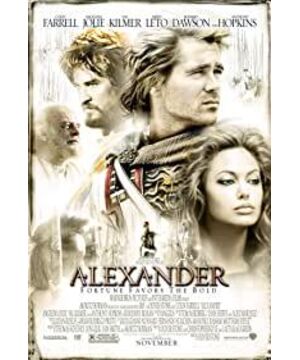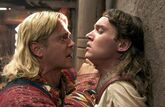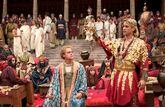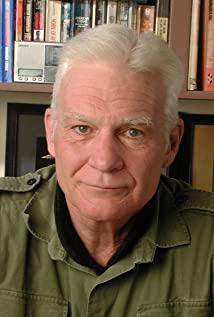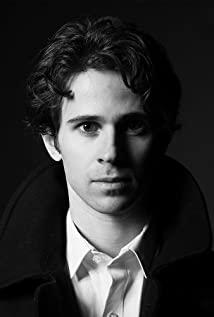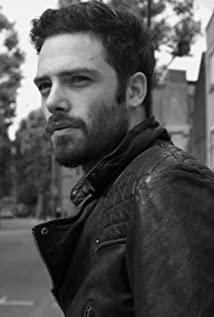Thousands of years later, when historians re-study this long-lost empire, the most they say is the regret brought about by the early death of the founder of the empire.
"If this army, which is almost at the end of its power, can continue to advance eastward under his leadership. Then it is very likely that in a few years, they will cross the mountains and jungles and enter the territory of China during the Warring States Period, making the difference between Eastern and Western civilizations. Communication and collision are thousands of years in advance. And the most imaginative thing is that they will meet a huge opponent in this land that carries the Chinese civilization: just after the Shang Yang reform, in terms of political influence and economic, military The Qin state is thriving in terms of strength."
This emotional figure was Alexander the Great, and the army he led was the Greek coalition that was called by later generations as one of the most powerful armies in human history.
Before Alexander came to the throne, Macedonia was just a small country in a corner of the country, facing not only the deterrence from the Persian Empire in the East, but also the struggle for power and profit from many Greek city-states, and even within Macedonia, there were many factions.
In 336 BC, after the assassination of Alexander's father, King Philip II of Macedonia, Alexander, only 20 years old, was elected as the next king of Macedonia.
In less than 14 years, he created an unprecedented huge empire. It made Macedonia from a Greek city-state into three continents across Europe, Asia and Africa.
His deeds are still praised and worshipped by people after thousands of years. In the 1950s and 1960s, a little boy in New York accidentally read ancient Greek myths and historical stories, and was deeply fascinated by them. These myths even affected his life. Stone.
Oliver Stone, who has entered Hollywood, has shot a series of well-known works such as "Field Platoon", "Born on the Fourth of July", "Heaven and Earth", and won many Oscars. . However, deep in his heart, he could not let go of his constant obsession with ancient Greece since childhood, and he was determined to make an epic film about ancient Greece in his lifetime.
Time passed quietly, and we entered the 21st century in a blink of an eye. The "Lord of the Rings" trilogy, which achieved great success and unprecedented response at the turn of the century, provided a new opportunity for the production of epic costume films in the new era.
Under the temptation of huge commercial interests, Hollywood has successively shot many epic costume movies of unprecedented scale. Oliver Stone's dream has finally come true, with a huge and stable investment, the next step is to choose the subject of the shooting.
Even though there have been several versions of the movie about Alexander the Great before, the prestige of the war in the South and the North and the galloping battlefield still made Oliver Stone decide to move this legendary figure who made a major impact in European history again. On the big screen.
After the theme was determined, it was the choice of the actor who played the protagonist of the movie Alexander the Great. Back then, Mr. Stone first took a fancy to Tom Cruise, followed by Heath Ledger, but they were all rejected, and finally the role fell. It came to Colin Farrell, who was unknown at the time.
The film market in 2004 can be said to have become a wrestling field for Hollywood epic blockbusters. The investment scale of "Troy", "King Arthur" and "Alexander the Great" is larger than one film, and the word of mouth is also one. worse than one. Are these movies really that bad?
Not to mention that the directors of several movies are famous directors who are famous in Hollywood, and even the creative team behind the scenes is a first-class team in Hollywood. The final effect of the movie not only surprises people, but also is full of doubts and inconsistencies. untie.
It was not until many years later that, with the insistence of the director and the main creative team, several films made a director's cut version that was completely different from the film's initial release in terms of narrative structure and film duration, and it was gradually rehabilitated.
Hollywood studios, on the one hand, want big stories and solid narrative structures, but on the other hand they have the quirk of being short and short.
For the same movie, if the duration is three hours or more, it will greatly reduce the number of appearances during the release of the movie, which is not conducive to Hollywood's pursuit of maximizing profits.
The film company's strict control of the length of the film makes the director of the film have no decision-making power over the final editing and production.
Oliver Stone's first cut of "Alexander the Great" was nearly four hours long. According to the current Hollywood routine, in this case, it is the safest way to split the movie into two episodes. However, the investor Warner Bros. unexpectedly made a suicide edit, cutting the movie to be neither long nor short. It is two hours and forty-five minutes, and this so-called theatrical version has already reached the point where the narrative and the director's original version are irrelevant.
The tragic ending caused by this approach is conceivable. The unprecedented investment of 155 million US dollars ended up with a global box office of only 167 million US dollars. The narrative chaos and fragmentation of the theatrical version even made the film director Oliver Stone successfully nominated for the worst picture at the 25th Golden Raspberry Awards for this film.
Going back to the discussion of the film itself, of course the grand scenes of the film and the restoration of history are second to none. In terms of historical details, although we can still pick out many mistakes and omissions today, compared to the film production of the same period, "Alexander the Great"'s respect for history is very valuable, only the tactics and weapons used by the Greeks and the restoration of the city of Babylon in the second half of the film can be seen.
In Oliver Stone's previous films, we can often see the skepticism and conspiracy theories that fill the plot of the film.
However, in "Alexander the Great", Oliver Stone uncharacteristically abandons the extension of historical conspiracy theories, and instead examines the legendary life of Alexander the Great from a more objective and open perspective.
On the one hand, the movie did not show a strong rejection of the image of Alexander the Great, who gradually took on the aura of mythology in the long-standing historical legend, but expressed it with a non-committal attitude. On the other hand, the film insists on describing the legendary life of Alexander the Great with materialism and main values.
This makes the film often show two completely different Alexander the Great, one is the mythical Alexander the Great, and the other is the real hero of mortals. The two images gradually overlap and intersect in the reciprocating and recurring memory narrative structure, and effectively combine to form a unified whole, which together constitute the eternal emperor Alexander the Great in the film.
The most commendable thing about the film is that it did not deliberately avoid the tragic ending of Alexander the Great, but instead used it as an important wedge between the beginning and the end of the movie.
Many people think that an epic movie should have a soul-stirring, hopeful ending, but they don't know that the power of tragedy is often more powerful than a happy ending.
When we look back, in ancient and modern times, at home and abroad, many people who died at an early age like Alexander the Great died not only ending their short lives, but also giving them a splendid image that ordinary people cannot reach, like a symphony in The climax came to an abrupt end, leaving endless reverie and memories for future generations.
Such characters can often be deeply remembered by the world. For example, General Huo Qubing, who also had great achievements in the Western Han Dynasty, Mrs. Bellon, Bruce Lee, and Leslie Cheung in modern times... Their premature death also allows them to avoid it from another perspective. The "Prince and Princess" style fairy tales inevitably end in the vulgar life, and they have achieved another glory.
The unique existence of the eagle in the film has caused countless film and television critics to carry out countless in-depth interpretations of it. However, in my opinion, the eagle that often appears in the film hovering high in the sky has only one metaphor, and that is the lofty ideals and ambitions of Alexander the Great from childhood.
With the growth of Alexander and the continuous progress of the expedition, we can see the eagle flying higher and higher, just like Alexander stretches continuously, and even overlooks the dream of the common people. However, the long-standing dream suddenly fell in the end, just like a goshawk without a trace...
Compared with other epic films, which are too rigid in value, "Alexander the Great" opened a new page in the history of film, and it showed the bisexual image of Alexander the Great in the film for the first time. Alexander is contradictory. On the one hand, he worships his father's majesty and strength, and on the other hand, he is full of confusion about his mother's machinations and hatred.
The tragedy of the family makes him almost hopeless about his love with a woman, and at the same time he is full of passion for homosexuality born out of sincere friendship. From the movie, the feelings of him and his best friend Hephaestion beyond ordinary friendship can be See through.
In fact, Alexander and Hephaestion as well as Achilles and Patroclus were well-known homosexuals in ancient Greek history.
However, in European and American countries where Christianity has a profound influence, it is obvious that this fact cannot be over-expressed in literary and artistic works, until Oliver Stone's "Alexander the Great".
It is precisely for this reason that the film was widely criticized when it was released, no less than the rejection of religious heresies in the Middle Ages. However, the bold practice of the film has fully paved the way for the success of Ang Lee's "Brokeback Mountain".
The Alexander Empire, like Alexander the Great himself, fell apart immediately after his sudden death. But the important influence of Alexander the Great on the integration of world nations and the transition from slave society to Hellenistic feudal society in Central and Western Asia is self-evident.
The author of this article said that everyone can search for "fantasy life" on WeChat or save the picture below, and scan the code on WeChat to follow. Fan Movie Life insists on in-depth content. If you like film and television dramas, variety shows, and entertainment gossip, you can pay attention.
View more about Alexander reviews


